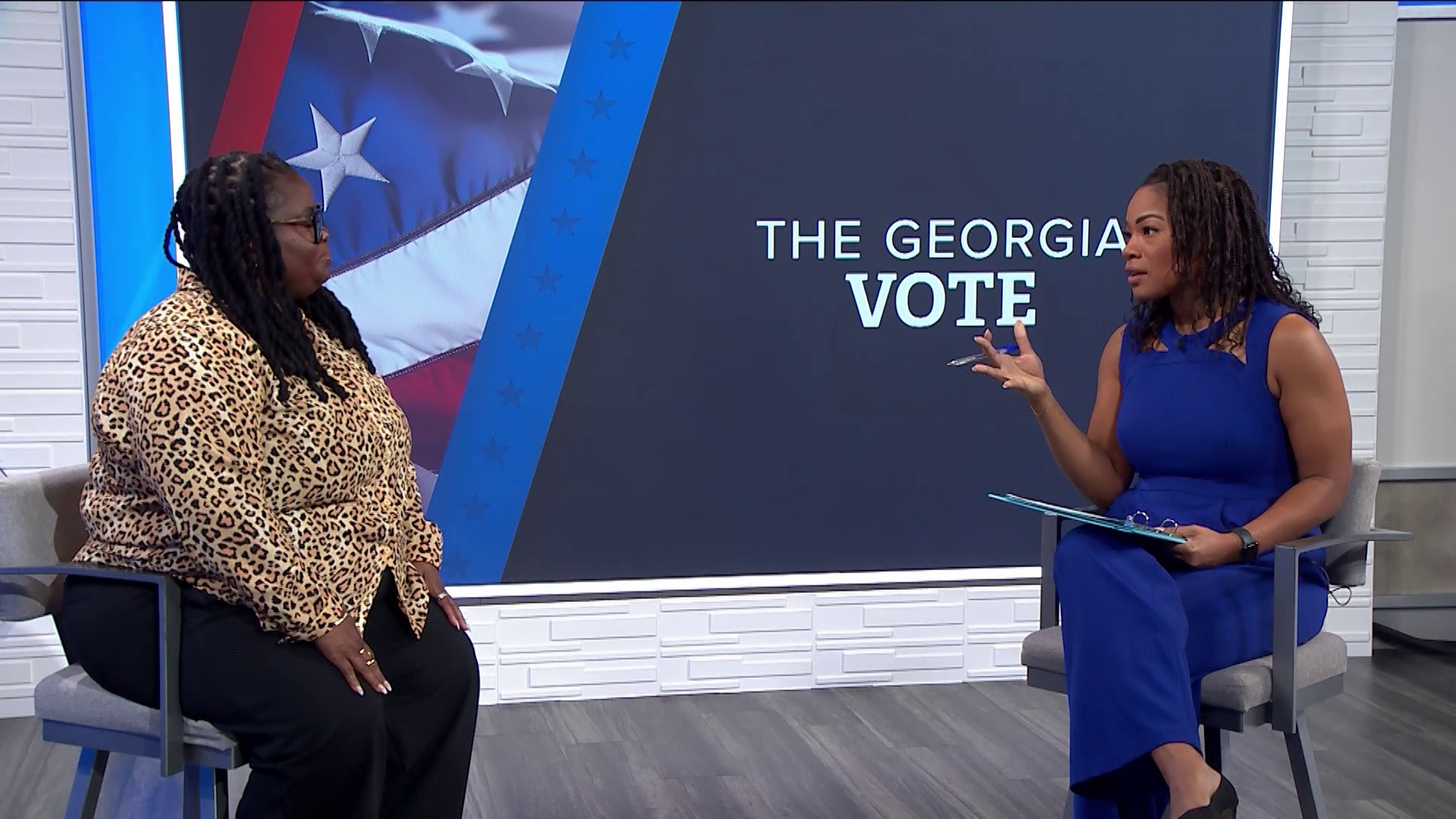ATLANTA — On Sept. 30, 2024, Superior Court Judge Robert McBurney, made a ruling that has once again shifted the landscape of abortion care in Georgia.
In a case brought by SisterSong Women of Color Reproductive Justice Collective against the State of Georgia, Judge McBurney ruled the "Heartbeat Law," legally known as the Living Infants Fairness and Equality Act -- or LIFE Act -- unconstitutional, striking down the law in Georgia.
Monica Simpson is the executive director of SisterSong, a national reproductive justice collective that’s been based in Atlanta since their inception in 1997. In a conversation with 11Alive, Simpson said the organization’s work is deeply rooted in the south.
“As we saw these attacks start to mount up in the south, we were very much in alignment with all of our partners in making sure that we were using every tool in the toolbox, to come against these attacks,” Simpson said.
Simpson said one of the tools was legal action through the courts, and they focused on House Bill 481, which made abortions after a fetal heartbeat is detected -- usually around six weeks -- illegal. Simpson said through this case, SisterSong was able to help craft the language in a way that people could see how it would directly affect their lives.
When Judge McBurney’s decision came down, Simpson said it was not expected, in some ways, because of the disappointing rulings they’ve gotten in the past.
“When we saw this come down, we were absolutely excited to hear that we had a judge that was on our side and understood how much of a burden this was on the lives of Georgians and moved in the right direction,” Simpson recounted.
Simpson also acknowledges that this decision came after a report by Pro Publica linking the deaths of Amber Nicole Thurman and Candi Miller to Georgia’s heartbeat law. The report states their deaths were ruled preventable, and care was unavailable to them due to restrictions imposed by the law.
“These two stories were the first two stories with the first two people that we were able to link, who lost their lives because this ban was in place,” Simpson said. “We definitely see these things as connected, but when that decision came down, we knew it was because of our organizing, we knew it was because we lost lives, and we knew it was because these judges understand that this is not what Georgians want.”
Shortly after McBurney’s ruling, Attorney General Chris Carr filed an appeal to reinstate the ban. Prominent Republicans like Georgia Gov. Brian Kemp came out against McBurney’s decision. In a statement from the governor’s office a spokesperson said, “Once again, the will of Georgians and their representatives have been overruled by the personal beliefs of one judge," the statement read.
"Protecting the lives of the most vulnerable among us is one of our most sacred responsibilities, and Georgia will continue to be a place where we fight for the lives of the unborn.”
When asked about those who are for this ban, hoping to save the life of a fetus that would at some point be viable, Simpson said in part, “I think it’s interesting that we have people who will never understand what it means to carry a child…that they are the ones with the loudest voice and opposition to what folks who actually carry pregnancies to term, what they are asking for."
In the wake of the appeal by Chris Carr, Simpson said the group's next move is to continue to organize and find more stories like Thurman’s and Miller’s to show what women are experiencing while living in a state with restrictive abortion law.
“Abortion access is healthcare," Simpson said. "Healthcare in the state should be expanded, it should be accessible, it should be available to every single Georgian, so we are going to make sure we move with that message."

